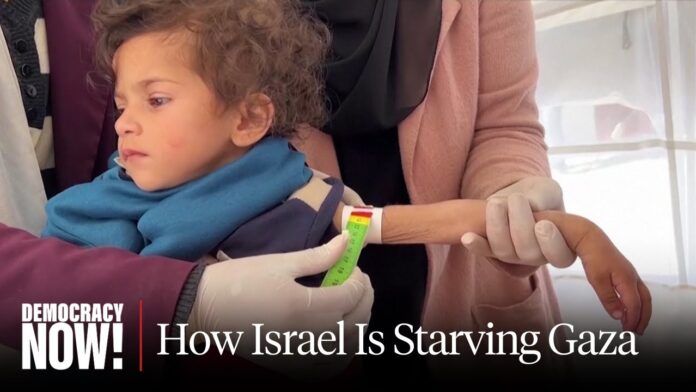As Gaza faces a severe food crisis, international concerns rise over the humanitarian impact and the urgent need for aid delivery
In a heart-wrenching development from the Gaza Strip, the dire consequences of prolonged conflict and restricted aid access have tragically manifested, with 15 children confirmed dead from hunger and malnutrition at Kamal Adwan Hospital in northern Gaza. The territory, home to 2.3 million people, is inching closer to a catastrophic famine, exacerbated by a chokehold on vital aid. Health officials in Gaza have raised alarms over the spiralling crisis, emphasizing the urgent need for international intervention to prevent further loss of innocent lives.
Dr. Ahmed Al-Kahlot, attending to the gravest cases of child malnutrition, underscored the dire state of health among the population, noting that malnourished mothers struggle to provide essential nutrients to their newborns. The situation has reached a critical point, with hospitals witnessing heartbreaking scenes of infants in incubators fighting for survival without adequate nutrition. The deaths of these children are a grim indicator of the escalating humanitarian crisis engulfing Gaza.
The blockade and stringent control over aid deliveries have severely hampered the availability of food supplies, with aid groups pointing to deliberate actions by Israeli forces to restrict food aid for Gaza. This has sparked fierce criticism and accusations of using hunger as a weapon in the conflict with Hamas. Amidst this turmoil, the story of nine-year-old Yazan al-Kafarna, who died due to malnutrition compounded by his pre-existing health condition, has become a poignant symbol of the crisis.
With nearly 1.9 million people displaced and living in makeshift shelters, the competition for scarce food resources has intensified, leading to desperate scenes of struggle among families for survival. The World Food Program’s suspension of aid deliveries to northern Gaza underscores the perilous security situation for aid workers, further complicating efforts to alleviate the hunger crisis.
International reports reveal a significant decline in the number of aid trucks reaching Gaza, with only about 15% of the necessary aid shipments making it through since the onset of the conflict. Humanitarian organizations have called for an immediate ceasefire and the establishment of secure routes for aid delivery as the only viable solution to address the food shortage.
As the international community grapples with the complexities of the conflict and seeks pathways to deliver aid, the situation in Gaza serves as a stark reminder of the human cost of war and the urgent need for concerted efforts to ensure the safety and well-being of vulnerable populations caught in the crossfire
